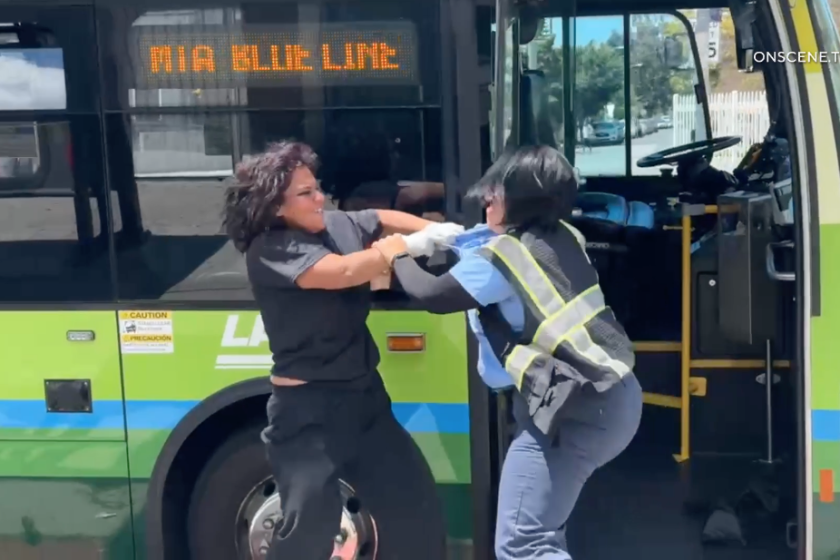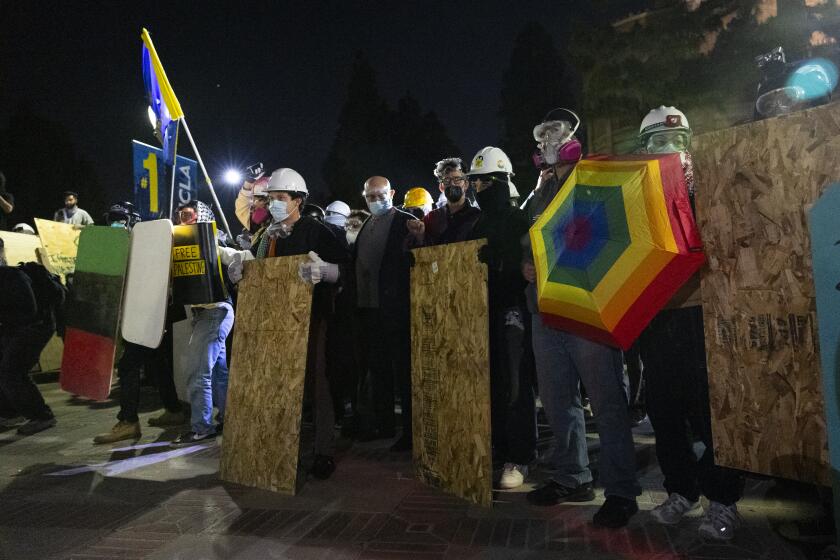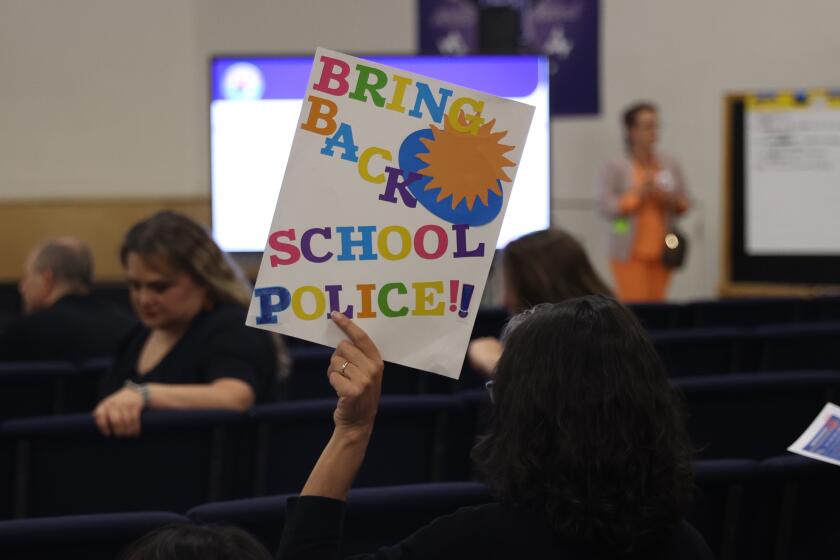Survivors Gather to Remember Holocaust : Observance: About 450 people came to pray, sing and mourn for the 6 million Jews who died under the Nazis.
The stripes, he knew, were just about the same width, almost the precise blue-gray.
So, Tony Chari, 61, a retired Laguna Beach periodontist, paired the designer pants with a pajama top and arrived in an outfit all too familiar to many participants of Sunday’s annual Holocaust Remembrance Day at Temple Bat Yahm in Newport Beach.
“I was there,” explained Chari, freed from Bergen-Belsen concentration camp in 1945. “That’s who I am.”
About 450 people came to pray, sing and mourn for the 6 million Jews who died during the Holocaust. They also considered the effects on survivors and their children, now in their 30s and 40s.
Some Holocaust survivors, like Chari, want to hide nothing about their experience, according to keynote speaker Aaron Haas, professor at Cal State Dominguez Hills and author of “In the Shadow of the Holocaust.” At the other extreme are those who denied their heritage and raised their children in another faith.
Some survivors remained silent because they found few willing listeners, Haas said. Some did not want to burden their children, and others realized they could not possibly convey what actually occurred.
But even when it was not discussed openly, the Nazi horrors were a constant presence in their homes and shaped their lives, survivors’ children say.
Many survivors still don’t want to admit the Holocaust affected their children because it would imply a victory of sorts for the Nazis, Haas said.
Only in the past two decades, as survivors confront their own mortality, have they begun to speak up, he said. Some are revealing former marriages and spouses and children who died in the camps.
Perhaps the most damaged are women who lost children, he said. Escaping with the least damage were the partisans who were able to fight back. The rest, he said, made a promise to the dead to bear witness, so the world would not forget.
Chari was a student in the Polish ghetto of Lodz when Nazis killed his father and transported the rest from the ghetto to concentration camps.
Out of 4,000 people originally transported from the ghetto, only 3,500 arrived alive at the Gross-Rosen concentration camp in Germany, he said. Only 500 were selected to work. The rest died.
“It was a bad camp,” Chari said. So bad, he said, he volunteered to be gassed.
He said he survived partly because of luck. Since the Auschwitz crematory had been vandalized, the Nazis weren’t accepting any more transports to the crematory.
But he also survived, he said, because he “cheated.”
He stole food and if caught, he automatically recited his phone number, 17814, just a few digits off his identification number, 17596, and somehow evaded punishment. He always had some medical complaint that helped him get work in the kitchen and not in the labor force.
After the war, Chari married a Greek scholar he met at an Iowa university. They had two children who now live near his ex-wife in Greece.
Over the years, Chari said he talked to his children about his experiences but never moralized to them about tolerance or the “lessons” of the Holocaust. “Children do what they see you do,” he said. “Not what you tell them.”
He says he doesn’t hate anybody--not even the Nazis.
Mary Kress, Observance Day chairwoman, noted that survivors in Israel face an uncertain future, with threats by Saddam Hussein, “another Hitler,” and new chemical weapons.
Sitting in his pajamas, Chari shrugged at the possibility of another Holocaust. He believes persecutions against Jews happen every 400 years, no matter what.
Not a religious man, Chari stood with the others as they recited the Kaddish, a Jewish prayer for the dead. But while the others read from the program, he knew it by heart.
More to Read
Start your day right
Sign up for Essential California for news, features and recommendations from the L.A. Times and beyond in your inbox six days a week.
You may occasionally receive promotional content from the Los Angeles Times.






